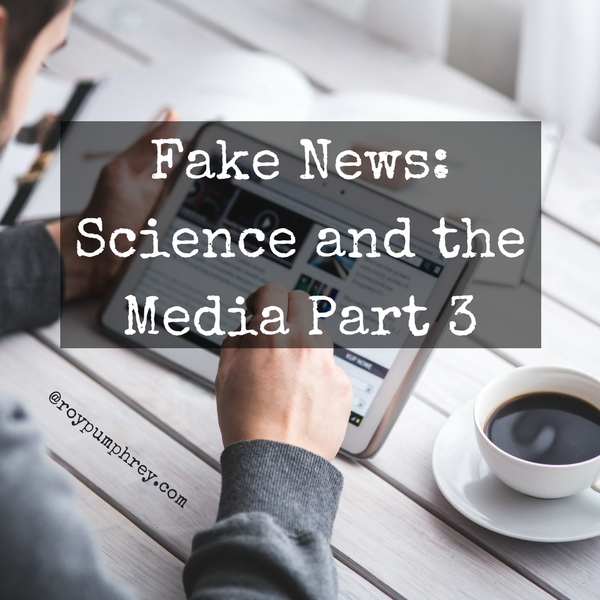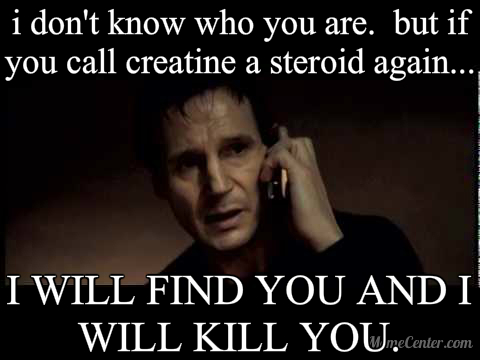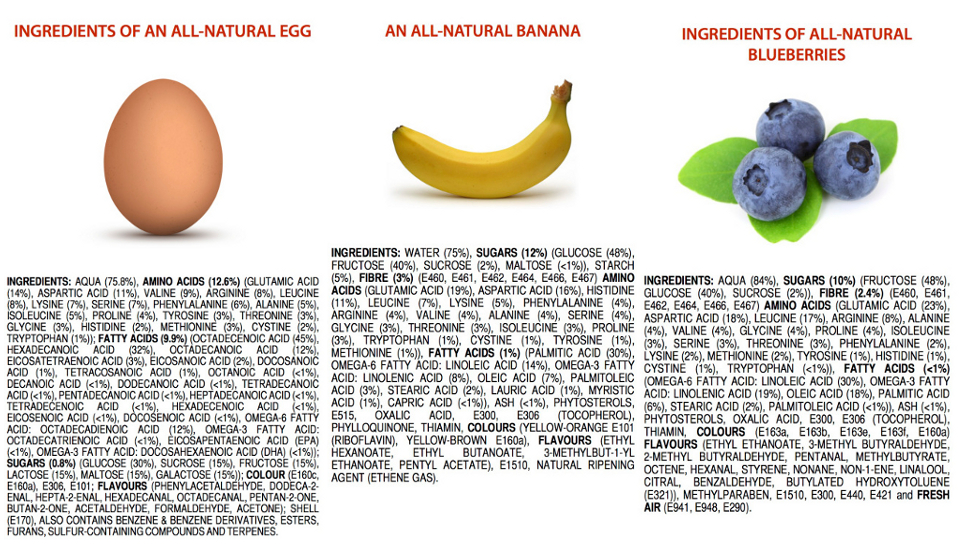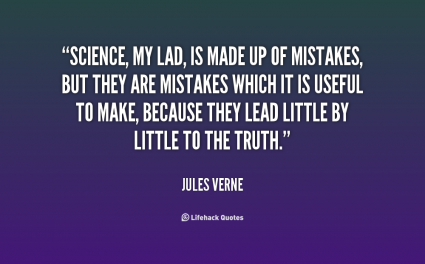If you missed Part 1 and/ or Part 2 click the links, read them and then pick back up here..
This is a long one folks, about 4500 words. Wanted to get this trilogy done and back to the regular fitness stuff. A note on the long quotes. I often get accused of taking things out of context. So I included the context.

“I Don’t Want to go “On” Creatine.
I Want to be Natural. “
Maybe I’m wrong but the whole “on”/ “off” something has to do with steroid lingo.
Where you cycle on and off of this or that steroid.
I think it’s safe to say, when people say this, they’re pretty much implying: creatine is either like or is an anabolic steroid.
And to associate or confuse creatine with steroids is uneducated/ stupid, you should shut your mouth till you know what the hell you’re talking about straight up crazy speak
Creatine Is NOT A Steroid:
Not even the same world.
“It’s (creatine) a combination of amino acids produced by the liver, kidney, and pancreas. Creatine is not a steroid—it’s naturally found in muscle and in red meat and fish, though at far lower levels than in the powder form sold on bodybuilding websites and at your local GNC.”- Mens Health
Creatine and Steroids are FUNDAMENTALLY,
DIFFERENT CHEMICAL COMPOUNDS
“The scientific definition of a steroid is any compound that possesses a common structural feature, four conjoined cycloalkane rings; specifically, 3 cyclohexane rings and a cyclopentane ring make up the structure that defines a steroid molecule. Cholesterol, a basic steroid compound found in eggs and naturally produced in the body. It later turns into steroid hormones like testosterone and estrogen. Note the four rings, they are what define ‘steroids’ in the scientific sense and include things like Vitamin D, Testosterone, and dietary cholesterol.
Creatine is a tripeptide compound, made up of three amino acids (L-arginine, L-glycine, and L-methionine), it does not possess the steroid backbone and does not fall into the scientific definition, and it is not illegal nor does it influence hormones nearly as much as the above mentioned ‘steroid’ compounds.
By all definitions, creatine is not a steroid.“- Examine.com
They don’t have the same, or even similar, chemical composition, physiological effect, or MOA (mechanism of action).

Creatine has been show to be safe, effective and have a host of other benefits from strength, endurance, and even neurological.
“Creatine has become one of the most extensively studied and scientifically validated nutritional ergogenic aids for athletes. Additionally, creatine has been evaluated as a potential therapeutic agent in a variety of medical conditions such as Alzheimer’s and Parkinson’s diseases.” – ISSN
But, despite 30 years of study on the efficacy of creatine supplementation for just about everyone, I still get a lot of,
“But is creatine safe?”
“Yeah, I don’t want to go on steroids.”
And
“Do you really think those chemicals are safe?”
Nope, not all “chemicals” are safe.
But Creatine and a lot of other Chemicals are Perfectly Safe, even beneficial.
Creatine is maybe THE most Studied Supplement in the History of Sports Supplements.
It’s brutally safe and effective:
“CM (creatine monohydrate) appears to be the most effective nutritional supplement currently available in terms of improving lean body mass and anaerobic capacity. To date, several hundred peer-reviewed research studies have been conducted to evaluate the efficacy of CM supplementation in improving exercise performance. Nearly 70% of these studies have reported a significant improvement in exercise capacity, while the others have generally reported non-significant gains in performance”– ISSN
At the time of the above review (2007) there had only been a single study that called into question the safety of creatine (and that conclusion was kinda BS) <—-the dude already had existing kidney disease.
“many anecdotal claims of side effects including dehydration, cramping, kidney and liver damage, musculoskeletal injury, gastrointestinal distress, and anterior (leg) compartment syndrome still exist in the media and popular literature. While athletes who are taking CM may experience these symptoms, the scientific literature suggests that these athletes have no greater, and a possibly lower, risk of these symptoms than those not supplementing with CM.
Many of these fears have been generated by the media and data taken from case studies (n = 1).”- ISSN
Wait, But What?
“Many Of These Fears Have Been Generated By The Media”
Articles with headlines like:
Side Effects and Dangers of Creatine Supplementation
Side Effects of Stopping Creatine
Creatine, Is it Worth the Risk?
Young Body Builders Beware: Supplements Can Be Dangerous
Is the Warning That Creatine’s Not For Teens Getting Through?
Containing lines like this,
“More serious is the finding that creatine supplementation increases the workload on the kidneys. Kidneys may be damaged if users take too much creatine or already have kidney problems. There is one report of a 25-year old athlete with a kidney disease whose kidney function worsened within 16 weeks while taking creatine daily during soccer training. “-Creatine? Is it Worth The Risk?
I don’t think it takes a Ph.D in biochemistry to question if the ONE CASE of increased kidney damage was really from the creatine…
Ya know, hard exercise, the kind you would probably do training for soccer, increases tissue breakdown which increases the load on the kidneys
But, maybe it was the creatine, I don’t know.
It’s conceivable that for this ONE CASE that it was 100% the creatine.
But…..
Exceptions Make Rules?
“Twenty reports of adverse reactions in people taking creatine have been filed with the Food and Drug Administration (FDA). The reactions included seizures, cardiac arrhythmias, blood clots and death. The FDA has not yet pointed the finger at creatine, but there are definitely some questions.” —same crappy article as above
20
In all the years and all the people who use creatine….200 million dollars worth in 1998, imagine what that number is now.
And there’s been TWENTY reported adverse reactions.
Guess you shouldn’t take that aspirin either.
Or This Winner:
“The University of Maryland Medical Center reports that serious potential side effects, most notably kidney damage, may be associated with high doses of creatine. A report published on the U.S. Food and Drug Administration website confirms this. It states that most of the accusations against creatine, with regard to its health effects, concern renal or kidney function. The FDA report includes a case in which creatine supplementation was linked to an athlete who died of renal disease. The report also describes another patient with renal disease, who was taking creatine but saw health problems recede after no longer taking creatine.”
So now you’re scared of creatine again, right?…
Or you can just finish the paragraph….
“The report notes, however, that extensive research on the effects of creatine on renal function has shown no adverse reactions.”- The Risk Of Too Much Creatine Intake
Sooooo we should use a single data point to make recommendations?
Weird…
“Doubtful allegations of adverse effects of creatine supplementation have been released through the press media and through scientific publications. In the present review we have tried to separate the wheat from the chaff by looking for the experimental evidence of any such claims. Anecdotal reports from athletes have appeared on muscle cramp and gastrointestinal complaints during creatine supplementation, but the incidence of these is limited and not necessarily linked to creatine itself. Despite several unproved allegations, liver (enzymes, urea) and kidneys (glomerular filtration urea and albumin excretion rates) show no change in functionality in healthy subjects supplemented with creatine, even during several months, in both young and older populations. The potential effects (production of heterocyclic amines) of mutagenicity and carcinogenicity induced by creatine supplementation have been claimed by a French Sanitary Agency (AFSSA), which might put consumers at risk. Even if there is a slight increase (within the normal range) of urinary methylamine and formaldehyde excretion after a heavy load of creatine (20 g/day) this is without effect on kidney function. The search for the excretion of heterocyclic amines remains a future task to definitively exclude the unproved allegation made by some national agencies. We advise that high-dose (>3-5 g/day) creatine supplementation should not be used by individuals with pre-existing renal disease or those with a potential risk for renal dysfunction (diabetes, hypertension, reduced glomerular filtration rate). A pre-supplementation investigation of kidney function might be considered for reasons of safety, but in normal healthy subjects appears unnecessary.” – Kim HJ1, Kim CK, Carpentier A, Poortmans JR.
It’s almost like the media is trying to use FEAR and Anecdotes.
Instead of FACTS and EDUCATION.
Almost like the media talks, quite definitively, about something they know nothing about?
As the International Society of Sports Nutrition Position Stand put it:
“Comments and public policy related to creatine supplementation should be based on careful assessment of the scientific evidence from well-controlled clinical trials; not unsubstantiated anecdotal reports, misinformation published on the Internet, and/or poorly designed surveys that only perpetuate myths about creatine supplementation.” –JISSN
But Creatine IS a chemical, how can putting a chemical in your body be safe?
Everything Is A Chemical:
“Chemicals are elements, or a combination of elements, with a specific composition and structure. All matter is made of chemicals!”- Scientific American
Everything you come into contact with is a chemical.
Let’s read that again,
EVERYTHING is a CHEMICAL
Unfortunately these days, the term “chemicals” is colloquially misrepresented. They are generally considered offensive, are balked at and even feared, because they might turn you into the Hulk (why’s that so bad? Isn’t he Incredible?), not to mention that “chemicals” are the source of cancer and an incalculable number of other illnesses. Because of this chemicals are often advertised as the bane of our existence. I think everyone, even those of us who are irked by this popular misuse of the term “chemical”, must be reminded that absolutely everything is a chemical (see aforementioned definition)!
News flash:
– We are chemicals
– Our friends are chemicals.
– Our babies are chemicals.
– The air we breathe is chemicals.
– The food we consume is chemicals that are digested by chemicals that turn them into more chemicals. –“Chemical” is not a Bad Word

OK, I get that everything is a “chemical” but, “you know what I mean”,
those artificial chemicals must be toxic?
Well, maybe.
Most things are toxic.
But toxic has nothing to do with natural or artificial, it has to do with:
Exposure: The Dose Makes The Poison
“Poisons are substances that can be lethal. They are chemicals, either manufactured or naturally produced. We know that everything is made from chemicals, so are all chemicals poisons? Actually, it depends on a number of things – most importantly the amount of the substance absorbed, inhaled or ingested.
The principle that the dose makes the poison is paramount. It means that all chemicals, from whatever source – human manufacture or natural – are potentially toxic at some dose. This fundamental concept underlies toxicologyThe study of the toxic effect of substances. and is crucial to the assessment of risk from chemicals and their safe use. It is known as the dose-response relationship – it is the amount of the substance that causes it to be toxic, not the substance itself.”– Science Learning Hub
Lots of things that are hella good for us, at normal levels, are toxic at certain level.
Even H20 is Toxic:
“Water intoxication provokes disturbances in electrolyte balance, resulting in a rapid decrease in serum sodium concentration and eventual death. The development of acute dilutional hyponatraemia causes neurological symptoms because of the movement of water into the brain cells, in response to the fall in extracellular osmolality.”- Fatal Water Intoxication
Too much of nearly any substance is toxic.
For most things we consume on a daily basis, toxicity is an unfounded fear.
Kinda Like Coffee.
Recently (April 2018) a Judge made some bullshit, ignorant, ruling where coffee in California must be labeled as possibly cancer causing.
“Coffee sellers are mulling how to fight a California judge’s ruling that would require the beverage to be branded with cancer warning labels.
The ruling stems from a lawsuit filed in 2010 by the Council for Education and Research on Toxics, a nonprofit group based in Long Beach. The group charged that Starbucks and other companies — a group that eventually included 91 defendants — did not warn consumers that ingesting coffee would expose them to acrylamide, a chemical formed when coffee beans are roasted.” – NYT
What Had Happened Was:
Context was Negated in Favor of Hype.
Acrylamide might cause cancer:
“Since acrylamide was first found in certain foods in 2002, dozens of studies have looked at whether people who eat more of these foods might be at higher risk for certain cancers.
Most of the studies done so far have not found an increased risk of cancer in humans. For some types of cancer, such as kidney, endometrial, and ovarian cancer, the results have been mixed, but there are currently no cancer types for which there is clearly an increased risk related to acrylamide intake.” – American Cancer Society
But it does in lab rats and there is a good chance it may in people.
In high enough doses.
Enough of a DOSE to get a RESPONSE.
Know what gives you a really big dose of Acrylamide?
Smoking…
Cancer Sticks.
Smoking gives you the highest dose.
But Coffee was a correlate
I mean, the people that do this thing called, studying cancer, don’t think coffee causes cancer,
“The Working Group found no conclusive evidence for a carcinogenic effect of drinking coffee.”
See, coffee was, until recently, considered possibly carcinogenic, ie cancer causing and does correlate with lung cancer..
“Although a positive association was observed between coffee intake and lung cancer, it has been reported that high intakes of coffee are frequently associated with cigarette smoking, which could contribute to the increased risk of lung cancer. “- WHO
So it’s probably not the coffee, the substance, not the dose of acrylamide in the coffee.
Even if acrylamide is carcinogenic, it’s probably NOT in the DOSE you’ll get, even if you’re slamming pots of coffee everyday.
I actually could not find the level of acrylamide to be carcinogenic in humans. But did find this,
“The Harvard and Karolinska investigation reportedly found no association between the consumption of foods high in acrylamide and the risk of three forms of cancer. The researchers found that dietary levels of acrylamide are not sufficient to increase the risk of bladder, large bowel and kidney cancer in humans.” – enhs.umn.edu
So What About The Cancer That is LINKED to Coffee?
It’s probably the continual DAMAGE TO THE CELLS from the TEMPERATURE the coffee is consumed at.
“The Working Group noted that the epidemiological evidence for very hot beverages and human cancer has strengthened over time, with positive associations and trends in studies that considered qualitative gradations of temperature. Additionally, new studies in experimental animals show that hot water above 65°C can act as a tumour promoter. Although the mechanistic and other relevant evidence for very hot beverages is scant, biological plausibility exists for an association between very hot beverages and cell injury and the sequelae that might lead to cancer.” – the Lancet
See drinking coffee, especially hot coffee, may indeed increase your chance of getting cancer.
The correlation is high.
But it’s not because of the coffee.
In this case, HEAT damaging the cells that line the mouth, throat, esophagus and stomach is the (probable) MOA (mechanism of action).
It would be easy to think that coffee is containing some crazy substance, even if it’s in miniscule doses, could be cancer causing.
And that Venti Mocha Cookie Crumble Frappuccino might be killing you for reasons other than the giant calorie count it comes with, but it’s not.
Be Skeptical of Everything.
Keep in mind the Null Hypothesis,
“the hypothesis that there is no significant difference between specified populations, any observed difference being due to sampling or experimental error.” – Dictionary.com
Is the most common finding in research.
“Every medical researcher dreams of doing studies or conducting clinical trials that generate results so compelling they change how diseases are treated or health policy is written. In reality, we are lucky if the results are even a little bit positive, and often end up with “null” results, meaning that the effect of a policy, drug, or clinical intervention that we tested is no different than that of some alternative.“- Statnews
That’s Right:
MOST research studies find NO EFFECT.
Unless the Study Gets Published.
Published studies overwhelmingly find an effect.
“Null results are exceedingly common. Yet they aren’t nearly as likely to get published as “positive” results, even though they should be. In an analysis of nearly 30,000 presentations made at scientific conferences, fewer than half were ultimately published in peer-reviewed journals, and negative or null results were far less likely to be published than positive results. Clinical trials with positive findings are published more often and sooner than negative or null trials.
With limited resources and space, journals prefer to publish positive findings and select only the most important null findings. Many researchers aren’t keen to publish null findings because the effort required to do so may not ultimately be rewarded by acceptance of the research into a scientific journal”. statnews
Wait But What?
While MOST studies find NO EFFECT, the ones we hear about through the lay media ALWAYS find an effect.
And that effect is usually quite astounding/ attention grabbing/ potentially scary and the fake news runs with it.
“Often the Most Exciting Results are the Most Fragile Results”- Michael Eisen
Reporting on an effect is what’s going to get clicks, keep you on that channel, sell papers, and scare the living sh@t out of you.
Even when that study’s outcome, might not be replicated again:
“Too many of the findings that fill the academic ether are the result of shoddy experiments or poor analysis. A rule of thumb among biotechnology venture-capitalists is that half of published research cannot be replicated. Even that may be optimistic. Last year researchers at one biotech firm, Amgen, found they could reproduce just six of 53 “landmark” studies in cancer research. Earlier, a group at Bayer, a drug company, managed to repeat just a quarter of 67 similarly important papers. A leading computer scientist frets that three-quarters of papers in his subfield are bunk. In 2000-10 roughly 80,000 patients took part in clinical trials based on research that was later retracted because of mistakes or improprieties.” –the Economist
Yep, that’s right kids; lot’s O “studies” cant be done again…
Check that: The OUTCOME, the RESULTS of the study can’t be replicated.
The studies are done and they get a different result.
Usually the replication,
ISN’T FINDING AN EFFECT
Maybe what had happened, wasn’t what had happened:
“Science moves forward by corroboration – when researchers verify others’ results. Science advances faster when people waste less time pursuing false leads. No research paper can ever be considered to be the final word, but there are too many that do not stand up to further study.
There is growing alarm about results that cannot be reproduced. Explanations include increased levels of scrutiny, complexity of experiments and statistics, and pressures on researchers. Journals, scientists, institutions and funders all have a part in tackling reproducibility.” –Nature
So, What They Said on TV Might Be BullSh@t?

YES, It probably is.
Well, NO, not bullsh@t, so much as:
TV “Science” Probably Isn’t A Big Deal In The Context of YOUR REAL Life
How The Hell Do I Know What to Believe?
What Would Ronny Do? Be Like Ron
Be Like Ron
“Half of What we Know Today Will be Wrong in 20 Years”– Andy Galpin, Ph.D
Here’s Andy’s Podcast, it’s great: The Body of Knowledge
Science is about making mistakes.
 Making the best guess, based off of the data we have today. And we’re getting more data tomorrow.
Making the best guess, based off of the data we have today. And we’re getting more data tomorrow.
So lots of our current understanding is gonna be wrong:
- We looked at the problem the wrong way.
- Had an incomplete understanding.
- Too dogmatic in the approach to the problem.
- Just plain screwed up.
Hell, there’s still MANY questions about some of the things I’ve talked about the last few weeks.
Artificial Sweeteners?
They may not be good guys at all.
There has been some initial research concerning NNS and the gut, and it doesn’t look good for the Sweeteners,
“Studies dating back to 1980 have reported associations between NNS exposure and alterations in microbiomes or bacteria in culture [95–98], raising the possibility that NNSs might exert effects on human health via interactions with gut microbiota.
In support of this notion, a recent study by Suez et al. demonstrated that consumption of NNSs produces glucose intolerance via alterations to the gut microbiota.” –Physiological mechanisms by which non-nutritive sweeteners may impact body weight and metabolism
and,
“A team of scientists found that artificial sweeteners change the huge colony of bacteria in your intestines to favor the harmful bacteria that increase risk for diabetes.” – Sugar Science
But again, we can’t go all in on this one either.
The main finding was in rats and the human “trial” was only 7 people.
Which ain’t enough people to statistically say nothing about nothing.
But others have looked into this and found an effect too…
Well, sometimes:
Segal’s team went further, testing the association directly in a small group of lean and healthy human volunteers who normally eschewed artificial sweeteners. After consuming the U.S. Food and Drug Administration’s maximum dose of saccharin over a period of five days, four of the seven subjects showed a reduced glucose response in addition to an abrupt change in their gut microbes. The three volunteers whose glucose tolerance did not dip showed no change in their gut microbes.- Scientific American
But why not Always?
“rodent studies are not always reflective of what happens in humans. “Animal studies can point to a general phenomenon, but animals in these studies tend to be genetically identical, while in humans, lifestyle histories and genetic differences can play a very powerful role,” he says. The constellation of microbes in a human body is a reflection of that body’s particular history—both genetic and environmental.
“The microbiome is a component intertwined in a complex puzzle,” Relman continues. “And sometimes the genetics is so strong that it will override and drive back the microbiota.” Genetic variations might explain why only four of the seven saccharin-fed humans had a change in their gut bacteria, for instance, although genetics is only one of a number of possible factors. And if someone is genetically predisposed to obesity and consumes a diet that promotes that obesity, the microbes might change to take advantage of that diet, thereby amplifying the effect.”- Scientific American
Was it the Dose?
The individuals?
The different NNS?
What is it?
As of Now, We Don’t Know.
Which is why science is so cool.
We have all these questions and a logical, reasoned way to go about finding evidence to help us formulate answers to them.
Like Creatine.
While I’m betting on it’s 100% Safe (99.9% can never say 1oo%) of the time.
There is this:
“It is prudent to note that creatine supplementation has been shown to reduce the body’s endogenous production of creatine,”
I never knew that until I was doing the research for this article.
So YOU, for some reason might be concerned about that.
Or not:
” (continued from above) however levels return to normal after a brief period of time when supplementation ceases.”- Creatine supplementation with specific view to exercise/sports performance: an update
I also learned that creatine at one time was banned in France due to (since unfounded) cancer concerns.
Looks like a certain head-butting soccer star even went to court over its use,
“Real Madrid star Zinedine Zidane admitted at the Juventus doping trial here on Monday he took the muscle growth supplement creatine while he played in Italy.”I took creatine, only when I played for Juventus. It was never the case when I played in France and hasn’t happened since I’ve been playing in Spain,” the Fifa World Player of the Year told the court.”It’s useful and I need it to play 70 matches a season,” he added. Creatine is banned in France but can be bought over the counter in several European countries, including Italy and Britain. It is not on the International Olympic Committee’s list of banned substances.”- Zidane admits using creatine
Don’t think that’s still the case today and creatine is legal, but “discouraged”.
High Protein Diets Might Limit Your Life Span
Remember from way back in Part 1 where we looked at the evidence and it looked like there may be more benefits than drawbacks to a high protein diet?
Well, one of those drawbacks may be a limit on lifespan.
“Dr. Longo and his team found that individuals aged 50–65 years who reported eating a high-protein diet (with more than 20 percent of their calories coming from protein) were four times more likely to die of cancer or diabetes and nearly twice as likely to die from any cause in the following 18 years. Also, a moderate-protein diet was associated with a 3-fold increase in cancer mortality. These effects were either abolished or reduced in individuals eating a high-protein diet that was mainly plant-based.” – O’Leary
The scientists speculate that this could be from increased growth hormone andIGF-1 production along with. “certain amino acids, which make up proteins, can reduce cellular protection and increase DNA damage” (Elsevier)
Does this mean you’ll live longer but be frail compared to a shorter more robust life with a high protein diet?
Don’t know.
And like most nutritional studies, this was done by dietary recall.
So there are still MANY unanswered questions.
And that’s what science is.
We research and learn and that leads to more research and more knowledge and more research and so on.
It’s A Vicious Cycle:

What To Do, What to Do?
The basics, and get them right:
- Eat Like an Adult
- Lots of veggies and fruits
- Adequate protein <—-more than the RDA
- Healthy fats
- A little sugar and other food stuff wont kill ya either…but not too much
- Go to the Doctors when you need to.
- See the Dentist
- Dental Care and Heart Disease <—-keep in mind heart disease is one of the things that you have a “high” probability of dying from.
- Exercise, try to break a sweat, everyday (pick heavy things up too)
- Get up and move…frequently.
- Read a Book, maybe Two.
- Get Enough Sleep
If something doesn’t work for you?
Change it.
If it does work for you?
Keep Doing That
Mostly,
Don’t Believe the Hype
Enjoy the steak next time, have a Diet Coke with it and a coffee after.
Remember, in NORMAL doses ALL of those things are probably FINE for you.
Almost everything is.
And about that time you punched the dude at the gym?
It wasn’t creatine induced “roid rage”.


